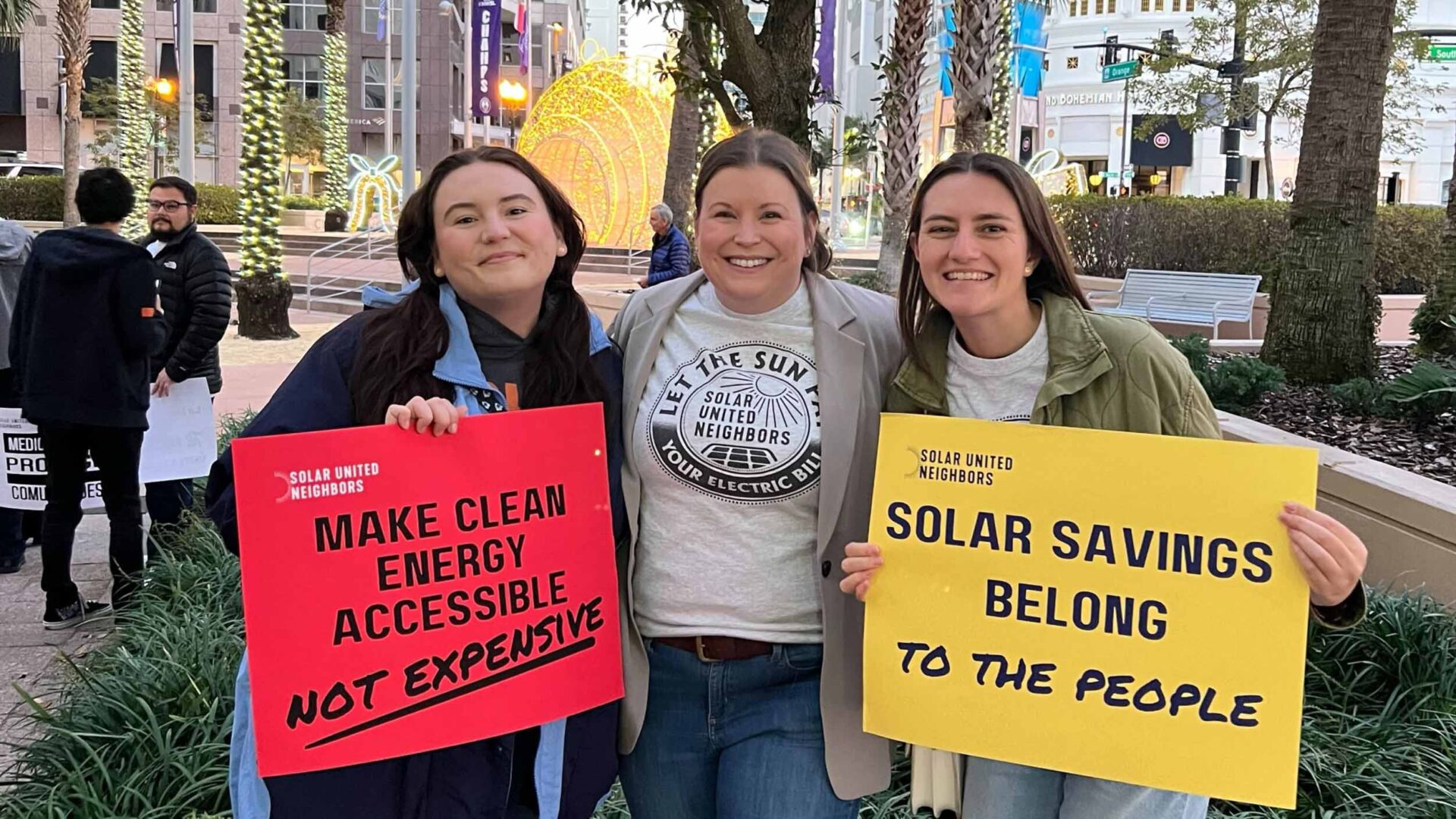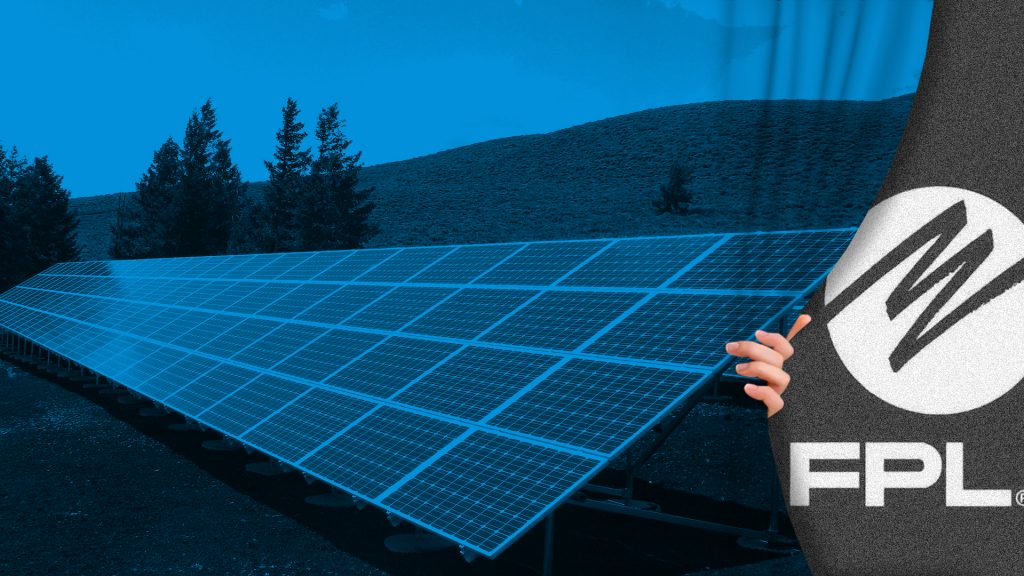Florida Power & Light’s (FPL) SolarTogether program is fake community solar
- Community Solar


Utilities use fake community solar programs to maintain their control over the energy system.
True community solar enables individuals, businesses, or organizations to buy or lease a “share” in a specific, nearby solar installation. They are then able to receive a credit on their electric bill. This credit works the same as if there were a solar system on their own roof.
Utility programs keep ownership of energy generation in the hands of the utility. The latest example comes from Florida, where the Public Service Commission recently approved Florida Power & Light’s (FPL) SolarTogether program.
What is FPL’s SolarTogether?
- FPL owns 20 large-scale solar power plants. This generates enough electricity to power almost 300,000 Florida homes.
- FPL customers must pay to subscribe to this program. At launch, participants pay more than they normally would for electricity. True community solar programs enable participants to pay less for their electricity. FPL says customers may start to see a return after seven years in the program.
FPL benefits and you pay the price
- FPL is charging all customers to build SolarTogether. Every FPL customer will feel this in the form of higher monthly electric rates.
- FPL is not able to set rates on its own. It needs approval from the state Public Service Commission. The commission’s approval of SolarTogether will allow FPL to charge customers more.
It’s a terrible deal for customers
- The Office of Public Council (OPC) and Florida Public Service Commission staff opposed the program. These parties are responsible for protecting customers from utility overreach.
- OPC says it may take as long as 26 years for non-participating customers to see savings from the program. The Public Service Commission erred by not getting a better deal for FPL customers.
- The program offers paltry savings to low-income participants. SolarTogether sets aside up to 10,000 slots for low-income participants. We estimate that the average participant would save just $3.50/month. The monthly electric bill for a family of four could be several hundred dollars a month.
Florida law prohibits true community solar
- Individuals, businesses, or organizations in Florida are not allowed to pool resources to develop their own solar projects.
- This gives utilities like FPL a monopoly over energy production.
How you can access true community solar
The most important thing for community solar in Florida is to advocate for policies that allow it. Sign up for our newsletter so you can stay up to date on policy fights and effective ways you can get involved to have access to this energy right.
Get advocacy opportunities and updates via email.
Other actions you can take:
- Learn about true community solar and its benefits using SUN’s guides and resources so you can advocate with clarity.
- Avoid fake community solar programs like FPL’s SolarTogether and spread the word to your community by sharing resources like this blog post.
Learn more about what makes real community solar.
Get the latest on solar straight to your inbox.
Fight for your solar rights.
Everyone has the right to go solar. Spread the sunshine nationwide and in your local community by taking action, joining events, and more.